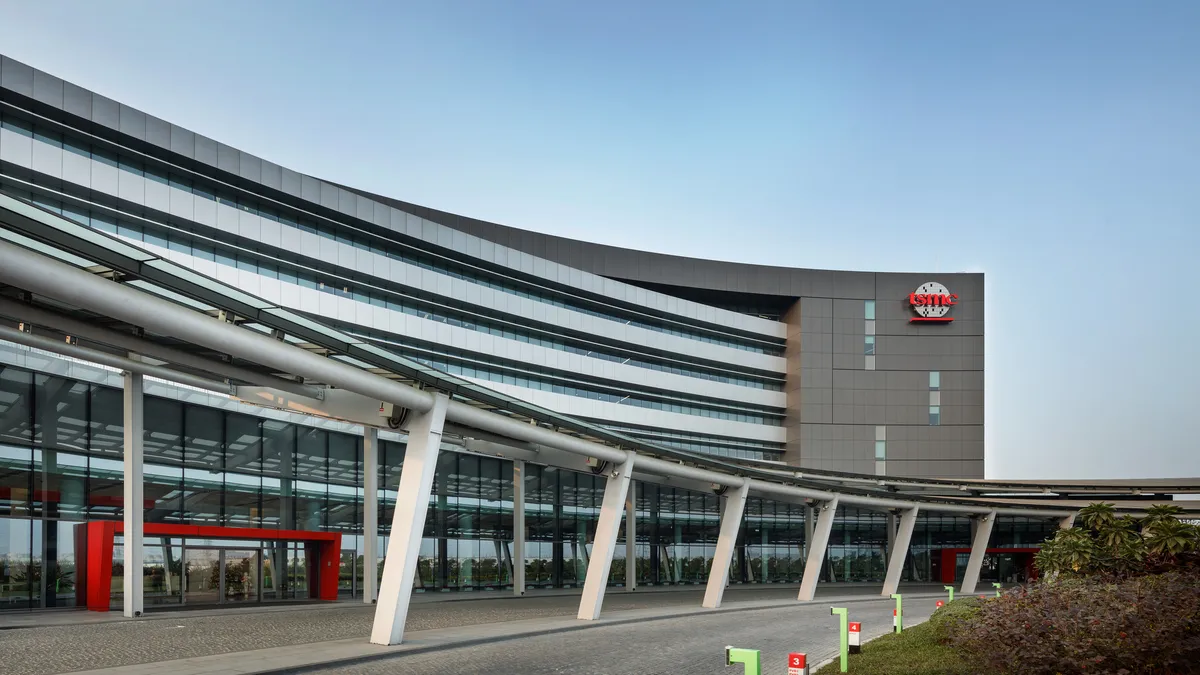Dive Brief:
- The Taiwan Semiconductor Manufacturing Company expects the shortage of semiconductors in the automotive manufacturing space "to be greatly reduced" starting this quarter as a result of its efforts to increase production, the company's CEO C. C. Wei said on the company's earnings call last week.
- TSMC has already increased the production of microcontroller units, or MCUs, by 30% YoY in the first half of 2021 with plans to bring that to 60% YoY for the full-year 2021, or about 30% over pre-pandemic levels in 2018, Wei said.
- Even with expanded production and investment in increased capacity, the high demand for the company's product is expected to test its production infrastructure. "We expect our capacity to remain tight throughout the year and into 2022 fueled by strong demand for our industry-leading advanced and special technologies," Wei said.
Dive Insight:
It's been three months since TSMC announced plans to invest $100 billion over three years to increase its capacity and the shortage of semiconductors has continued to impact automotive production.
Ford has been forced to limit and stop production at multiple factories this month due to the shortage. And General Motors has been forced to take a similar step at four of its North American plants, according to The Detroit Free Press.
Wei underscored that it could take some time to see improvements at the OEM level as products have to go through multiple supplier levels.
"From chip production to car production, it takes at least 6 months to reach the automotive OEMs with several tiers of suppliers in between," he said last week.
The latest forecast from IHS Markit shows that the chip shortage is expected to continue through the third quarter of 2021. In the fourth quarter, MCU suppliers are expected to be able to have the capacity to meet demand, but won't have capacity available to make up for the missed vehicle production in early 2021. The extra capacity making up the backlog is expected to arrive in the first quarter of 2021.
GM has taken to limiting the features in its cars as a way to reduce the number of semiconductors it needs. This has included wireless charging, auto start-stop and HD radio, according to The Verge.
Going forward, Wei told analysts that TSMC expects the automotive industry to become more reliant on its products, not less.
"The trend towards safer, greener and smarter vehicles will continue to drive silicon content increase as well as the demand for advanced and specialty technology," he said.














